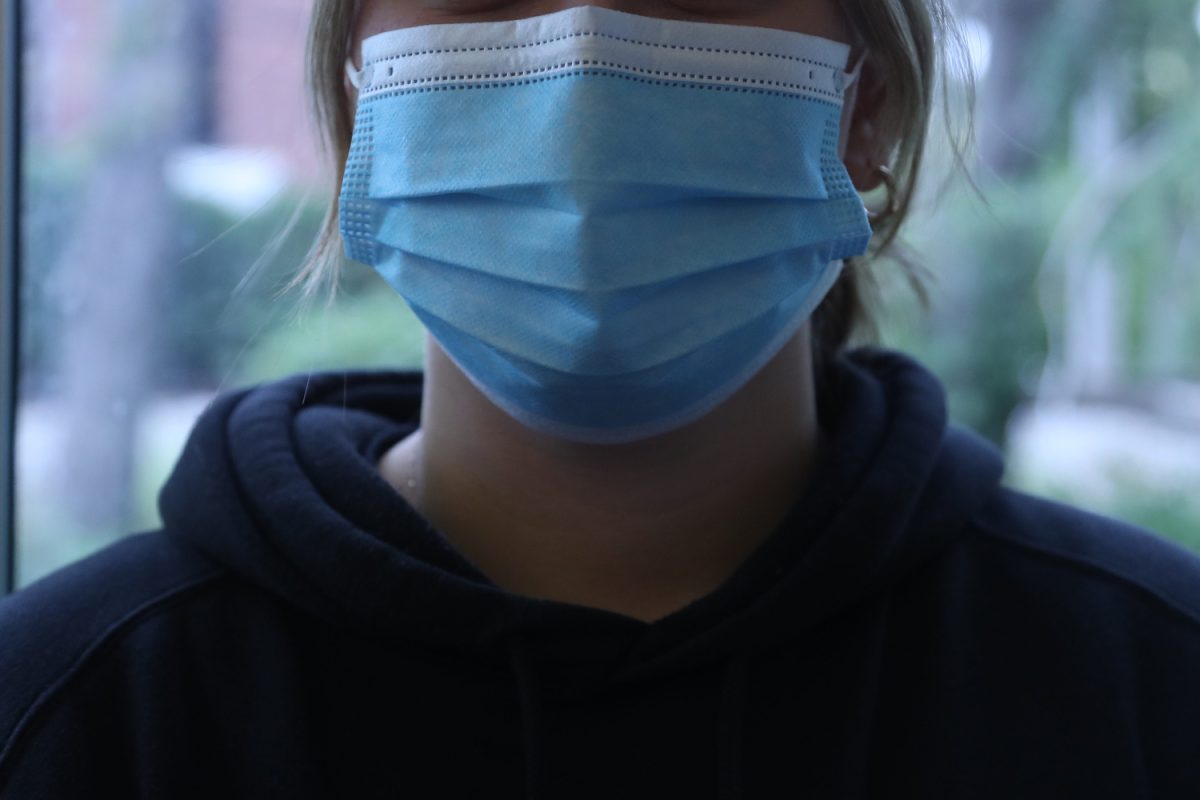Johnson County Public Health officials cited an increase in respiratory illness, specifically, COVID-19, influenza, and respiratory syncytial virus, known as RSV, in the past weeks.
These spikes have been especially apparent in RSV and COVID-19. RSV is particularly common in infants but can be found in the elderly and those who are immunocompromised.
RSV typically manifests as a common cold, with those who contract it having chills, a runny nose, a cough, and sometimes a high fever. For infants, however, severe RSV can cause viral pneumonia which may leave them hospitalized.
Melanie Wellington, an infectious disease specialist at UIHC, said RSV is typically contracted between October and the end of March, and this increase has put pressure on the health care system.
Wellington said these spikes have been seen in the southeast part of the U.S., however, soon these cases will come to the Midwest.
Many of the symptoms experienced by those who have RSV are tachypnea — commonly referred to as fast breathing — decrease in oxygen, and trouble breathing.
Though these symptoms tend to manifest primarily in infants, RSV can be deadly if left untreated for those who are immunocompromised. It can lead to hospitalization and even death in some cases, Wellington said.
In May, the RSV vaccine was approved by the Federal Drug Administration for usage in babies and those over the age of 60. Wellington said any infant under the age of eight months should receive the new vaccine for RSV.
Wellington strongly encourages those over the age of 60 to reach out to their health care providers to find out if they are eligible for the RSV vaccine.
“Even with these new vaccines, we can’t protect everyone from RSV or COVID-19 for that matter,” Wellington said. “Some people are still at risk even if they get vaccinated. However, these vaccines have been thoroughly tested and they are incredibly safe and effective.”
On Aug. 21, the FDA approved an RSV vaccine designed specifically for pregnant women. The goal is that the mother will start making antibodies to the virus, Wellington said. The baby will receive these antibodies in the womb through the placenta, and once born, they will have the antibodies, too.
Wellington encourages every individual regardless of whether they have or at serious risk of complications from RSV, COVID-19, or influenza to get vaccinated.
Samuel Jarvis, Johnson County Public Health community health division manager, said flu and COVID-19 symptoms are similar. With COVID-19, there is an additional loss of taste and smell. Taking a COVID-19 test is key to identifying which of the illnesses has been contracted.
Jarvis said in terms of seasonality, these respiratory illnesses are most common in the fall and within the past couple of years due to the pandemic, there have been different spikes in the number of cases in RSV, COVID-19, and the flu.
Public Health receives a notice of all respiratory illnesses across the state. Johnson County Public Health Director Danielle Pettit-Majewski said they are typically notified the first time there is a positive influenza case.
They will report those until they have been reached, and they can confidently identify where it is. These reports are received weekly from the state with specific case numbers.
Jarvis attributes these illnesses to a variety of factors.
“Some seasons are worse than others,” Jarvis said. “That is why it is really important that folks get tested, and our hospital and lab partners do gene sequencing so we can better understand the disease itself.”
Another factor is those who have the illness exposing others. Jarvis and Pettit-Majewski stress the importance of staying home when you are ill.
Though it may be tough because parents need to pay bills and provide for their families, Jarvis encourages those who are ill to isolate themselves.
In addition to staying home when sick, Pettit-Majewski stressed the importance of getting vaccinated, particularly with the flu.
For those who are immunocompromised, the risk is even greater. Instead of having the aches and pains associated with the flu, they might be hospitalized for multiple days. Not only is this costly for the patient, Jarvis said, but for health care resources as well. Because they are so vulnerable to illness, their symptoms can be even more severe.
Pettit-Majewski and Jarvis recommended getting the flu vaccine between Sept. 1 and Oct. 31.
In terms of vaccinations for COVID-19, the FDA and CDC officially approved a new COVID-19 vaccine. It is based on one of the more recent variants and is now in the process of being rolled out nationwide.
RELATED: UI student pharmacists administer free flu vaccines at Hy-Vee
Hospitals and pharmacies, such as CVS and Walgreens, is offering the new vaccines in addition to the other vaccines normally offered. These vaccines will continue to be provided free of charge.
“This is what we can do to protect ourselves and to protect the most vulnerable,” Pettit-Majewski said.










